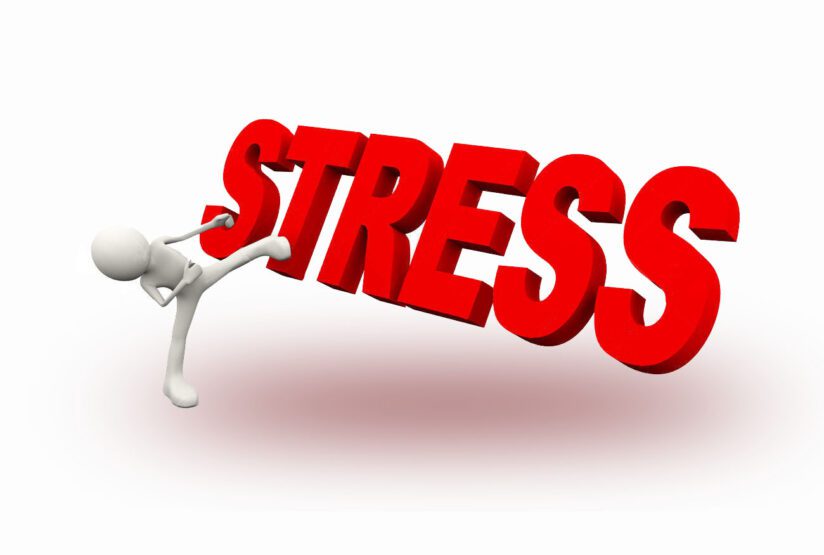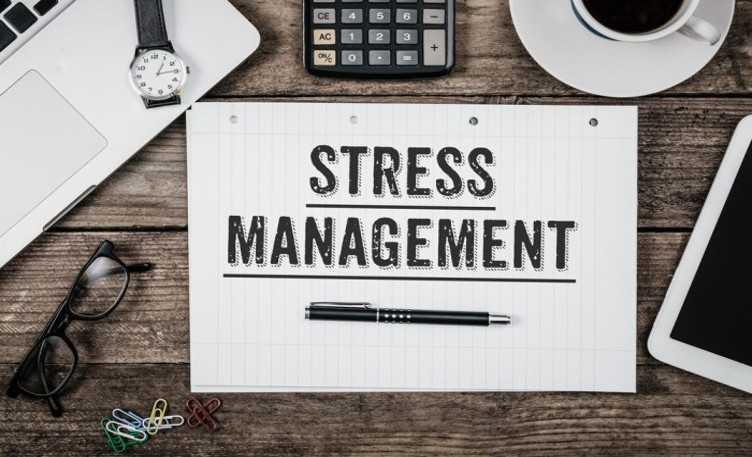Introduction: Stress Management Techniques
In the hustle and bustle of modern life, stress has become an almost constant companion for many individuals. From juggling responsibilities at work to managing personal relationships and coping with unforeseen challenges, stress can have a significant impact on our overall well-being. In this article, we will delve into the concept of stress, its effects on our lives, the common causes that contribute to its occurrence and practical Stress Management Techniques. L

Table of Contents
The Two Faces of Stress: Eustress and Distress
Not all stress is bad. Eustress, or positive stress, is a type of stress that motivates us to achieve our goals and perform at our best. On the other hand, distress is the negative form of stress that overwhelms us and hampers our ability to function effectively.
The Impact of Stress on Health
Excessive and prolonged stress can take a toll on our health. It can manifest as physical symptoms like headaches, muscle tension, and sleep disturbances. Moreover, chronic stress has been linked to more serious conditions such as cardiovascular diseases, compromised immune systems, and mental health disorders.
Causes of Stress
Workplace Pressures
The demands of modern work environments, including tight deadlines, high expectations, and competition, can contribute significantly to stress levels.
Financial Burdens
Financial instability, debts, and the pressure to meet financial obligations can lead to persistent worries and anxiety.
Relationship Struggles
Difficulties in personal relationships, whether with family, friends, or romantic partners, can be a major source of stress.
Academic Demands
Students often face stress due to academic pressures, such as exams, assignments, and the desire to excel academically.
Health Concerns
Health-related stress can stem from personal illness, the illness of a loved one, or the fear of health problems.
The Role of Technology in Stress
In today’s digital age, constant connectivity and information overload can contribute to feelings of stress and overwhelm.
Symptoms of Stress: Recognizing the Signs of a Burdened Mind and Body
Stress, an integral part of the human experience, often goes hand in hand with the demands of daily life. While a certain level of stress can be motivational, chronic and overwhelming stress can have detrimental effects on our physical and mental well-being. Recognizing the symptoms of stress is a crucial step in addressing its impact and seeking appropriate coping mechanisms. Stress, often triggered by various external pressures and internal conflicts, triggers the body’s “fight or flight” response. While this response is designed to help us handle challenges, chronic activation of this system can lead to a range of physical, emotional, cognitive, and behavioral symptoms.
Physical Symptoms of Stress
Headaches and Muscle Tension
Persistent stress can cause tension headaches and tightness in the muscles, particularly in the neck and shoulders.
Fatigue and Sleep Disturbances
Stress can disrupt sleep patterns, leading to insomnia or restless nights. The resulting fatigue can further exacerbate stress levels.
Digestive Issues
Stress can influence the digestive system, leading to symptoms like indigestion, stomachaches, and even irritable bowel syndrome (IBS).
Changes in Appetite
Stress may lead to changes in eating habits, such as overeating or loss of appetite, which can have a significant impact on overall health.
Emotional Symptoms of Stress
Anxiety and Restlessness
Feelings of unease, excessive worry, and restlessness are common emotional responses to stress.
Irritability and Mood Swings
Stress can make individuals more irritable and prone to mood swings, making it challenging to manage emotions effectively.
Depression and Hopelessness
Long-term stress can contribute to the development or exacerbation of depressive symptoms, including feelings of sadness and hopelessness.
Cognitive Symptoms of Stress
Difficulty Concentrating
Stress can make it difficult to concentrate, focus on tasks, or make decisions, affecting work or academic performance.
Memory Impairment
Chronic stress may impair memory and cognitive functions, leading to forgetfulness and difficulty retaining information.
Negative Self-Talk
Stress can give rise to negative thought patterns, leading to self-doubt and lowered self-esteem.
Behavioral Symptoms of Stress
Social Withdrawal
Stress might prompt individuals to isolate themselves from social interactions, further impacting their emotional well-being.
Increased Substance Use
Some individuals may turn to alcohol, drugs, or other substances as a way to cope with stress, leading to potential addiction issues.
Procrastination and Decreased Productivity
Stress can hinder productivity and lead to procrastination, affecting both personal and professional responsibilities.
Impact on Relationships and Overall Well-being
Unmanaged stress can strain relationships, as individuals may have difficulty communicating or expressing empathy. It can also weaken the immune system, making individuals more susceptible to illnesses.
Recognizing When to Seek Help
It’s important to recognize when stress symptoms are overwhelming and interfering with daily life. Seeking support from friends, family, or professionals is crucial when symptoms become unmanageable.
Techniques for Managing Stress:

Stress is an inevitable part of our lives, and while we may not always be able to eliminate its sources, we can certainly learn how to manage it effectively. In this essay, we will explore a range of practical coping techniques that individuals can adopt to navigate the complexities of stress and maintain their well-being. By incorporating these strategies into daily life, we can build resilience and create a healthier, more balanced approach to handling stressors..
1. Understanding Stress:
Stress can be defined as the body’s reaction to external pressures or demands. There are two main types of stress: acute (short-term) and chronic (long-term). When faced with a stressor, the body activates the fight-or-flight response, releasing hormones like adrenaline and cortisol. Understanding this response is crucial to comprehending the need for effective stress management.
2. Identifying Sources of Stress:
Before managing stress, it’s important to identify its sources. Common stressors include work-related pressures, relationship issues, financial concerns, and health challenges. Recognizing what triggers stress in your life empowers you to address these triggers more effectively.
3. The Role of Lifestyle in Stress Management:
Maintaining a healthy lifestyle can significantly impact stress levels. Regular exercise releases endorphins, which are natural mood enhancers. A balanced diet provides the nutrients necessary for optimal brain function. Additionally, getting sufficient sleep is essential for managing stress as sleep deprivation can exacerbate its effects.
4. Mindfulness and Meditation:

Mindfulness involves staying present and fully engaged in the current moment. Meditation is a technique that promotes mindfulness through practices like focused attention or guided visualization. These techniques help individuals detach from stressful thoughts, promoting relaxation and mental clarity.
5. Breathing Exercises:
Breathing exercises offer a simple yet powerful way to manage stress. Techniques like deep breathing and diaphragmatic breathing activate the body’s relaxation response, slowing the heart rate and reducing stress hormones. These exercises can be done anywhere and at any time.
6. Time Management and Prioritization:
Effective time management helps prevent overwhelm. By organizing tasks, setting priorities, and avoiding multitasking, individuals can create a more structured routine that minimizes stress-inducing situations.
7. Social Support and Communication:
Maintaining healthy relationships provides emotional support during stressful times. Effective communication allows individuals to express their feelings and seek advice from friends and family. Sharing one’s burdens can provide relief and foster a sense of connection.
8. Hobbies and Recreation:
Engaging in hobbies and recreational activities provides an enjoyable way to relax and unwind. Whether it’s painting, playing an instrument, gardening, or hiking, these activities divert attention from stressors and promote a sense of accomplishment.
9. Setting Boundaries:
Setting boundaries is essential for preventing excessive stress. Learning to say “no” when necessary and setting limits on commitments helps individuals maintain a healthy balance between responsibilities and self-care.
10. Professional Help and Counselling:

Seeking professional help, such as therapy or counselling, is a valid and effective approach to managing stress. Trained professionals can provide personalized strategies, coping mechanisms, and a safe space to address underlying issues.
11. Cognitive Restructuring:
Cognitive restructuring involves changing negative thought patterns that contribute to stress. Techniques like reframing challenges as opportunities and practicing positive self-talk can shift perspectives and reduce the emotional impact of stressors.
12. Humor and Laughter:
Laughter is a natural stress reliever. It triggers the release of endorphins and promotes relaxation. Finding humor in everyday situations and incorporating laughter into daily routines can provide a light-hearted way to manage stress.
13. Music Therapy:
Listening to our favorite music triggers the release of endorphins, commonly known as “feel-good” hormones. These endorphins uplift our mood and create a sense of happiness, counteracting the negative effects of stress. Music therapy acts as a natural stress reliever by diverting our attention from stressors and promoting a sense of tranquility.
14. Karaoke Therapy:
Singing allows for the release of pent-up emotions. Karaoke therapy provides a safe and non-judgmental space to express feelings through music, helping individuals release stress and tension. Karaoke is often a social activity, whether performed with friends, family, or in a public setting. Social interactions and shared laughter during karaoke sessions foster a sense of belonging and reduce feelings of isolation.
15. Importance of Travelling:

Traveling offers a refreshing escape from the daily grind and holds immense benefits for managing stress. Stepping away from familiar surroundings allows us to detach from stressors, offering a much-needed mental break.Traveling also encourages relaxation, as leisurely activities and exploration promote the release of endorphins, the body’s natural stress relievers. Whether it’s unwinding on a beach, exploring a bustling city, or reconnecting with nature, the positive impact of travel on stress management is undeniable.
Conclusion
In a world where stress seems almost inevitable, mastering practical coping techniques is like having a toolkit for life’s challenges. These techniques are not mere band-aids but powerful tools that empower us to actively manage stress and promote our overall well-being. By incorporating mindfulness and meditation into our daily routines, engaging in regular physical exercise, making healthy lifestyle choices, nurturing social connections, effectively managing time, and embracing mind-body practices and hobbies, we can build a strong foundation for resilience.
Frequently Asked Questions (FAQs):
1. What is stress management, and why is it important? Stress management involves adopting techniques and strategies to effectively handle and reduce the negative effects of stress on physical and mental well-being. It’s important because prolonged or intense stress can lead to various health issues and impact overall quality of life.
2. How can I tell if I’m experiencing chronic stress? Chronic stress is characterized by persistent feelings of being overwhelmed, constant worry, irritability, changes in sleep patterns, and physical symptoms like headaches or digestive issues. If you notice these signs lasting for an extended period, it’s advisable to seek support.
3. Are there any quick stress relief techniques I can use in the moment? Yes, there are several quick techniques you can use to alleviate stress on the spot. Deep breathing, progressive muscle relaxation, and even taking a short walk can help calm your nervous system and reduce stress levels.
4. Can exercise really help with stress management? Absolutely. Regular physical activity increases the production of endorphins, which are natural mood elevators. Exercise also helps reduce the levels of stress hormones in the body and promotes relaxation.
5. What’s the difference between mindfulness and meditation? Mindfulness is a state of being fully present and engaged in the current moment, while meditation is a practice that cultivates mindfulness through techniques like focused attention, deep breathing, or guided imagery.
6. How do I find the right balance between work, family, and self-care? Finding balance requires effective time management and setting priorities. It’s important to schedule time for self-care, hobbies, and spending quality time with loved ones. Setting boundaries and learning to say no when necessary are also crucial.
7. Is seeking professional help necessary for managing stress? Seeking professional help is not always necessary, but it can be incredibly beneficial. A trained therapist or counselor can provide personalized guidance, coping strategies, and a safe space to address underlying issues contributing to stress.
8. Can laughter really help reduce stress? Yes, laughter triggers the release of endorphins, which are natural stress relievers. Finding humor in everyday situations and engaging in activities that make you laugh can have a positive impact on your overall well-being.
9. How long does it take for these stress management techniques to show results? The time it takes to see results can vary from person to person. Some techniques, like deep breathing, can provide immediate relief, while others, such as developing a regular exercise routine, may take a few weeks to show noticeable effects.
10. Can children and teenagers benefit from these techniques as well? Yes, stress management techniques can be beneficial for individuals of all ages. Teaching children and teenagers healthy coping mechanisms can help them navigate the challenges they face and build resilience from a young age.
11. What if I’ve tried various techniques and still struggle with managing stress? If you’ve tried multiple techniques and still find it challenging to manage stress, consider seeking guidance from a mental health professional. They can offer tailored strategies and support to help you better cope with stressors.
12. Is it possible to completely eliminate stress from my life? Stress is a natural part of life, and some level of stress is unavoidable. However, by implementing effective stress management techniques, you can significantly reduce its impact and develop the skills to navigate stress in a healthier way.
My Facebook Page: https://www.facebook.com/pwcc38/
My Linkedin link: https://in.linkedin.com/in/sarita-saini-31150017
My Google Review link https://g.page/r/CQ_29tt0B4yaEBM/review
